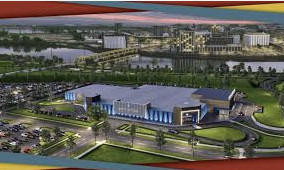The future of a proposed $275 million casino in Cedar Rapids now hinges on a legal interpretation of a two-word phrase in a 2021 ballot measure, as a district judge weighs arguments presented by parties for and against the contentious development.
Judge Michael Schilling of Iowa’s Eighth Judicial District presided over final arguments Wednesday at a neutral venue in Mount Pleasant, where attorneys representing Riverside Casino & Golf Resort, the Iowa Racing and Gaming Commission, and the Linn County Gaming Association presented their cases. At the heart of the debate is the validity of Public Measure G, a 2021 referendum in which Linn County voters approved gambling to “continue” in the county — despite there being no active casino operations at the time.
Riverside Challenges Referendum Wording
Attorneys for Riverside Casino, located in nearby Washington County, argue that the ballot language was fundamentally flawed and therefore cannot lawfully serve as a basis for issuing a gaming license to the Cedar Rapids-based project. Riverside, which could suffer significant financial losses if the proposed Cedar Crossing Casino moves forward, contends that the wording “may continue” misled voters.
“In a county where there was no gambling going on, a proposition requiring the approval or defeat of gambling games should ask the voters to approve the commencement or initiation of gambling,” Riverside attorney Mark Weinhardt argued. “It can’t ask them to continue existing gambling games” that didn’t exist.
Weinhardt described the ballot language as “defective” and “affirmatively misled people,” suggesting that even if voters were generally aware of the project, the precise phrasing may have confused them. Riverside’s attorneys maintain this alleged ambiguity invalidates the Iowa Racing and Gaming Commission’s February 2024 decision to grant a license to the Linn County Gaming Association.
Defenders of the License Reject Confusion Claims
Read full article
Ruling Approaches in Legal Dispute Over Cedar Rapids Casino License




